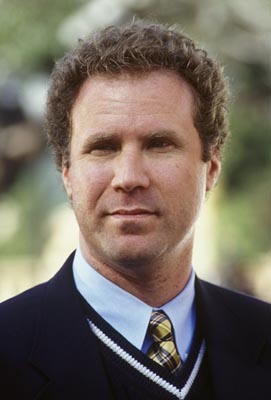http://www.nytimes.com/2008/07/07/arts/television/07roth.html?_r=1&ref=movies&oref=slogin
Author Brooke Barnes presents an interesting story about movie executive Tom Rothman wanting to make the leap from behind the camera to in front of the camera. In the article, Barnes points out the fact that executives have never been successful in making the switch to in front of the camera. This fact is the reason her lede works so well and why it drew my attention to the article. In the first sentence, the author talks about the eye-rolling that happened at 20th Century Fox when Rothman made it known that he wanted to be in front of t he camera.
he camera.
Barnes then went on to explain why each executive before Rothman had failed so miserably in his try in front of the camera. The thing with Rothman was that he did a great job with his job as a host for “Fox Legacy,” a movie history show that can be seen on Fox Movie Channel. Because of increased viewership, his bosses are now pedaling for an Emmy Nomination for the first-time host.
As we’ve seen in the past, some people just have knack for being in front of the camera. The late Tim Russert had an amazing presence in front of the camera that he seemed to have his entire life. Dan Rather of CBS had a way of delivering the news as if it was your grandfather telling you about the world. Some people simply have a knack for connecting with the viewer and acting as though they are sitting in the living room next to you when explaining a story. This article goes to show that given the right opportunity, some people have a way of flourishing in front of the camera, even though the person may not have previous experience. Barnes ends the story with a great quote from Rothman saying, “I try to have a sense of humor and remember the basic absurdity of all of this.”
Author Brooke Barnes presents an interesting story about movie executive Tom Rothman wanting to make the leap from behind the camera to in front of the camera. In the article, Barnes points out the fact that executives have never been successful in making the switch to in front of the camera. This fact is the reason her lede works so well and why it drew my attention to the article. In the first sentence, the author talks about the eye-rolling that happened at 20th Century Fox when Rothman made it known that he wanted to be in front of t
 he camera.
he camera.Barnes then went on to explain why each executive before Rothman had failed so miserably in his try in front of the camera. The thing with Rothman was that he did a great job with his job as a host for “Fox Legacy,” a movie history show that can be seen on Fox Movie Channel. Because of increased viewership, his bosses are now pedaling for an Emmy Nomination for the first-time host.
As we’ve seen in the past, some people just have knack for being in front of the camera. The late Tim Russert had an amazing presence in front of the camera that he seemed to have his entire life. Dan Rather of CBS had a way of delivering the news as if it was your grandfather telling you about the world. Some people simply have a knack for connecting with the viewer and acting as though they are sitting in the living room next to you when explaining a story. This article goes to show that given the right opportunity, some people have a way of flourishing in front of the camera, even though the person may not have previous experience. Barnes ends the story with a great quote from Rothman saying, “I try to have a sense of humor and remember the basic absurdity of all of this.”







No comments:
Post a Comment